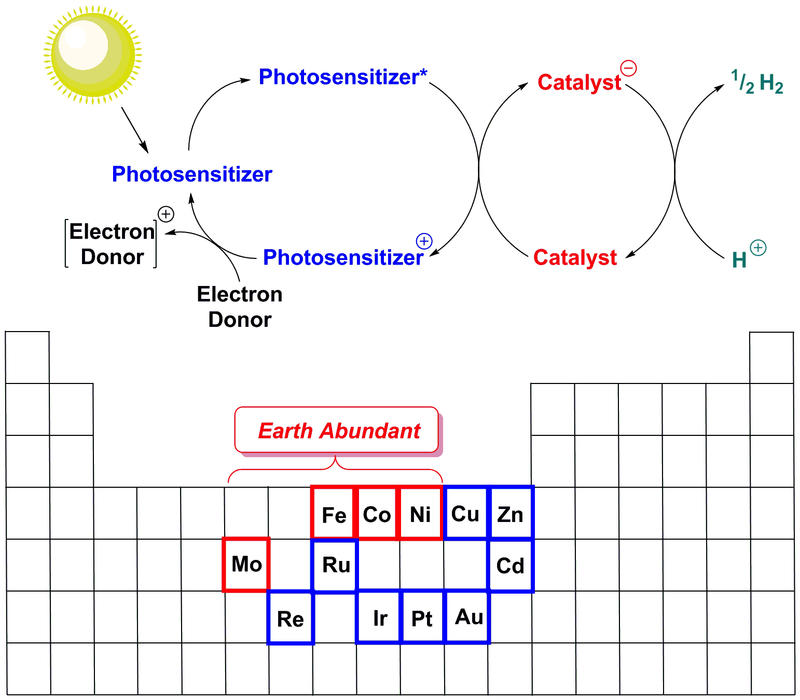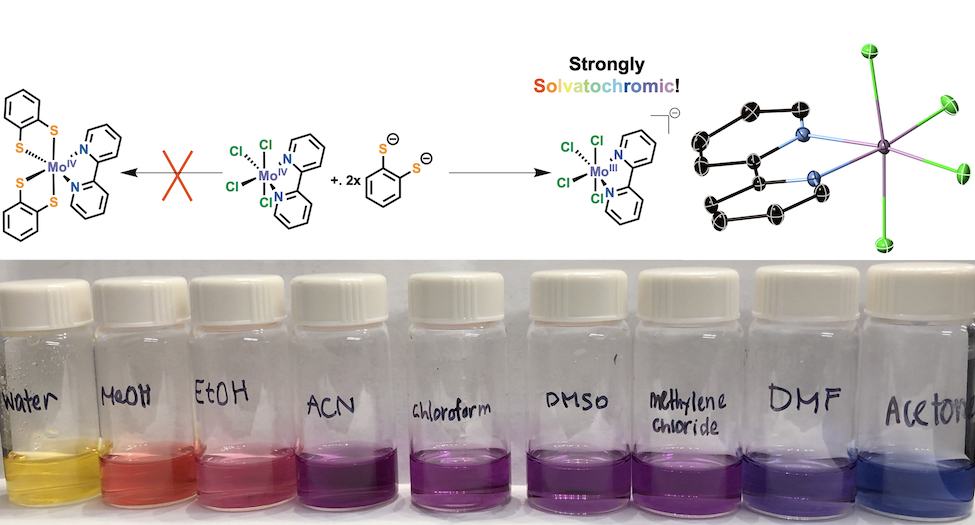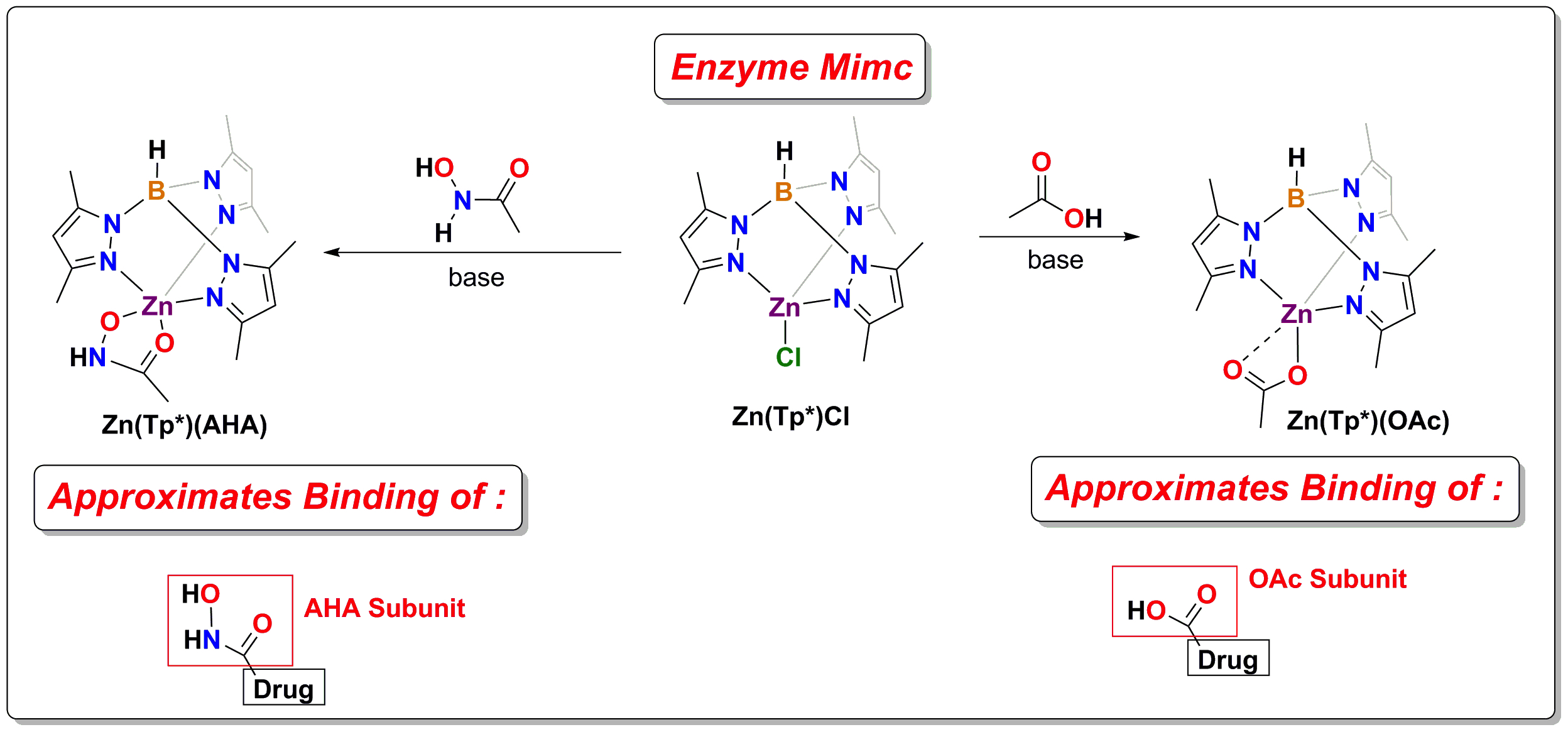Project 1: Proton Reduction Catalysts for Artificial Photosynthesis
The main research area for the lab is the design, synthesis and evaluation of new proton reduction catalysts that produce hydrogen gas in aqueous environments. This is an exciting project with a strong relevance to world events as energy sources are predicted to become increasingly scarce. We will focus mainly on metal centered complexes using abundant first row metals such as cobalt and nickel. We are especially interested in the “pendant base effect” known to greatly increase the activity of hydrogen evolution catalysts. Our research attempts to better understand this effect while simultaneously developing new catalysts for this transformation. Once we synthesize our target metal complexes, we will evaluate them electrochemically and photochemically for their activity as hydrogen evolution catalysts.
Publications:
Hydrogen Production Using a Nickel Catalyst Combining Redox Activity and Pendent Base Effects Inorg. Chem., 2024
Molecular catalysts of Co, Ni, Fe, and Mo for hydrogen generation in artificial photosynthetic systems Coord. Chem. Rev, 2018

Project 2: Solvatochromic Molybdenum Complexes
Solvatochromism is a very interesting effect whereby the color of a metal complex, the hallmark of inorganic chemistry, changes in different solvent environments. This effect is caused by a significant difference in the polarity of the ground state relative to the excited state. In solvent environments of varying polarity, the excited state is either stabilized or destabilized, resulting in a energy shift of the frontier orbitals, changing the energy of absorption and by extension, reflection. We will evaluate a series of interesting Mo complexes to more deeply understand this effect.
Publications:
Synthesis and Characterization of Strongly Solvatochromic Molybdenum(III) Complexes Inorg. Chem., 2021

Project 3: Zinc Complexes to Mimic the LpxC Enzyme in binding Anti-microbial Compounds
In a collaboration with the Peterson research group, we are investigating the binding of potential anti-microbial drugs specifically targeting gram-negative bacteria, in an effort to curb infections common to healthcare facilities such as pneumonia and meningitis. This project involves the synthesis of a variety of ZnTp* complexes and evaluating the binding of small molecules such as Acetylhydroxamic acid and acetic acid to the Zn center. Once this process is well understood, we will further investigate the binding of the anti-microbial compounds, which are larger and much more complex.
Publications:
Simple zinc complex to model substrate binding to zinc enzymes Inorg. Chim. Acta, 2018
